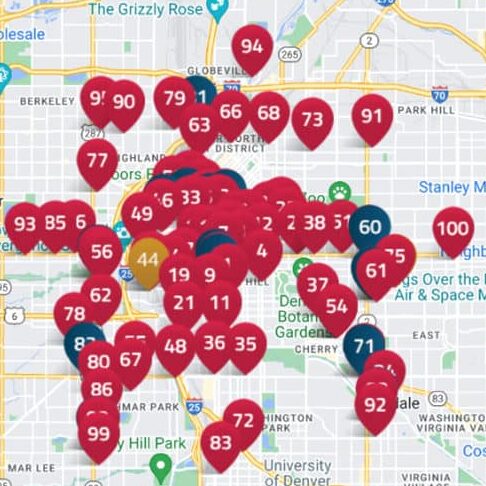Time for some straight talking. Unfortunately, the reality is that if you don’t manage to achieve at least a 2:1 in your degree, you are going to struggle to get straight into a graduate role with an investment bank. Almost definitely if you’re trying to get into a front office position.
It’s tough, but this is an incredibly competitive sector to try and break into. Top investment banks have to be ruthless with so many applications (Morgan Stanley received 90,000 applications for their 2014 summer internships!)
The banks need to have some way of slimming down such a mountain of applications into a shortlist; taking a straight line approach of academic performance as one of the main criteria is, therefore, hardly surprising.
Will banks reject me completely if I have a 2:2 or lower?
It’s highly likely that you won’t make it through the initial stages of the recruitment stages for top investment banks if you have a 2:2 or a Third. However, some banks that aren’t as high up the list for competition may still consider your application if you’ve got some impressive work experience on your CV too. You’ll also need to provide some good reasons to explain why you didn’t achieve a 2:1 or higher if they take your application further.
In short, don’t give up hope completely. But be realistic. Think of the numbers and the other graduates you’re up against. If you were the recruiter, who would you pick on paper? You’ll have to try out an alternative route aside from the graduate scheme path if you still want to make a go of investment banking.
What can I do instead?
Apply for banks with less competition compared to the big bulge bracket investment banks. This could allow you to gain experience that’ll look intriguing in the eyes of an investment bank, particularly if you work in an area like corporate banking.
An alternative role in a bank may also give the chance to study for a professional qualification such as the CFA as well. You could also gain experience working in a corporate environment which would provide you with knowledge that would be valuable to an investment bank.
You don’t necessarily have to stick to pure banking either to find your way into investment banking later down the line. If you work within an alternative area of business you could also potentially study for the MBA in a couple of years’ time, which is a possible ticket for a career change into investment banking (if you decide that’s still what you want to do!). Experience of other industries is also valuable to investment banks.
The MBA can be extremely pricey, so you might want to look into the possibility of scholarships and/or funding from your employer if you choose to try out this route. Remember, it’s no guarantee that you’ll be successful in getting the job you want in investment banking.
And hey, maybe it’s not even the end of the world if you don’t make it into investment banking. There are so many potential routes you can explore in business and finance aside from this particular industry that you will still be in with a chance of building an exciting and lucrative career. Check out the AllAboutFinanceCareers.com Industry Breakdown section for starters! Point proven.

For years I have studied American finance regulations. All the information in this blog is sourced from official or contrasted sources from reliable sites.
Salesforce Certified SALES & SERVICE Cloud Consultant in February 2020, Salesforce Certified Administrator (ADM-201), and Master degree in “Business Analytics & Big Data Strategy” with more than 13 years of experience in IT consulting.
